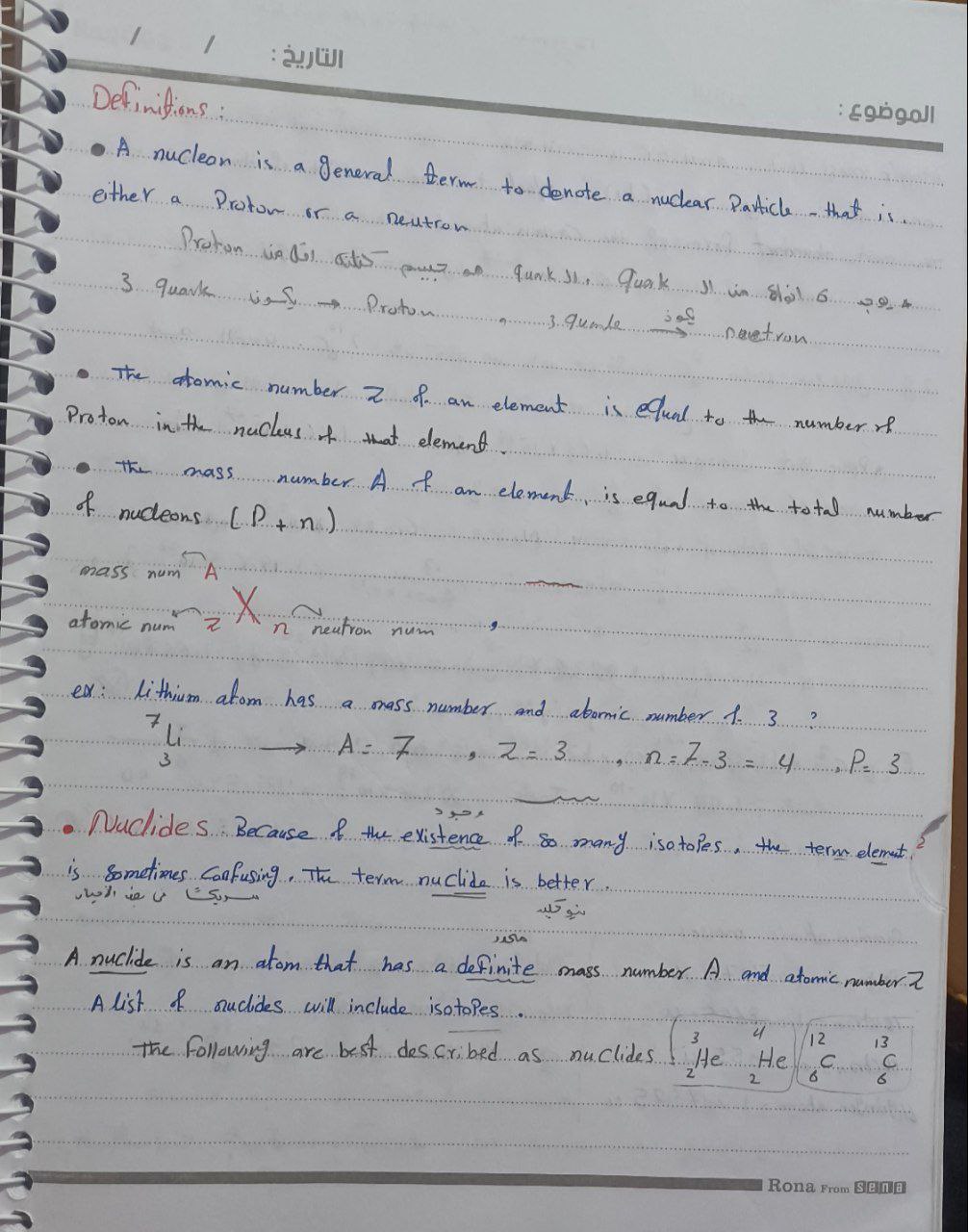Definitions: A nucleon is a general term to denote a nuclear particle that is either a proton or a neutron. The atomic number Z of an element is equal to the number of protons in t... Definitions: A nucleon is a general term to denote a nuclear particle that is either a proton or a neutron. The atomic number Z of an element is equal to the number of protons in the nucleus of that element. The mass number A of an element is equal to the total number of nucleons. A nuclide is an atom that has a definite mass number A and atomic number Z.

Understand the Problem
The question is presenting definitions related to nuclear particles, atomic numbers, mass numbers, and nuclides. It discusses the basic concepts of protons, neutrons, and isotopes, along with examples of elements such as lithium and descriptions of nuclides.
Answer
Nucleon: proton/neutron; Atomic number Z: protons; Mass number A: nucleons total; Nuclide: atom with specific A and Z.
The definitions explain that a nucleon is a nuclear particle (proton or neutron), the atomic number Z equates to protons in a nucleus, the mass number A equals the total nucleons, and a nuclide is an atom with definite A and Z values.
Answer for screen readers
The definitions explain that a nucleon is a nuclear particle (proton or neutron), the atomic number Z equates to protons in a nucleus, the mass number A equals the total nucleons, and a nuclide is an atom with definite A and Z values.
More Information
The document summarizes basic nuclear physics concepts, which are crucial in understanding atomic structure and isotopes.
Sources
- Nucleon - Wikipedia - en.wikipedia.org
- Mass number - Wikipedia - en.wikipedia.org
AI-generated content may contain errors. Please verify critical information